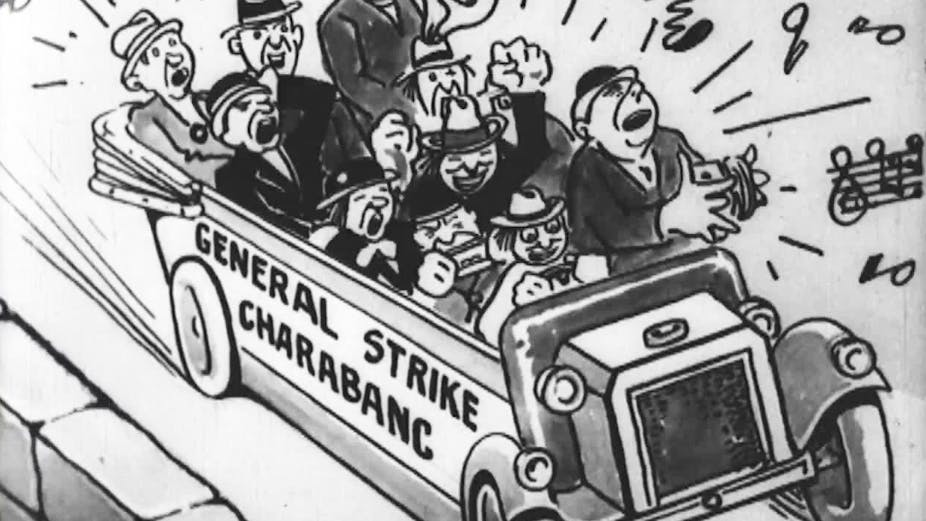In a recent edition of the BBC’s Daily Politics, the Conservative culture secretary, Sajid Javid, attacked Labour’s proposed “budget responsibility lock” as “worthless”, telling hosts Andrew Neil and Jo Coburn that “every single Labour government in history has resulted in economic chaos”.
These comments were merely the most recent manifestation of a long-running Conservative strategy to undermine the economic credibility of the Labour Party. The budget deficit, they insist, was caused not by the global financial crisis, but by the mismanagement of the economy under Tony Blair and Gordon Brown. The last Labour government had, according to David Cameron, “maxed out our nation’s credit card”.
According to some critics of the prime minister, these remarks demonstrated that Cameron has “no understanding of basic accounting”. Yet his remarks were undeniably effective in translating complex economic issues into language that could be easily understood by most voters.
Back to the 1930s
That such tactics are nothing new is beautifully illustrated by a series of archive films recently released by the British Film Institute. One of these, a Conservative Party cartoon dating from 1930, similarly attempts to pin the blame for Britain’s economic woes on an incompetent Labour government. The film, The Socialist Car of State, shows a car marked “Trade and Employment” carrying the personification of England, John Bull, being skilfully piloted around various economic obstacles by the pipe-smoking Conservative prime minister, Stanley Baldwin.
Things begin to go wrong when, first, the car is struck by the “General Strike Charabanc” (allowing various sinister foreigners to steal its precious cargo of jobs and contracts), and, second, when John Bull takes advantage of a stop at the “General Election 1929 Garage” to change drivers. The new driver, the Labour MP Jimmy Thomas, is unable to get the car moving in the right direction and soon weighs the vehicle down with “Socialist Burdens” which, quite literally, cause the wheels to come off.
The film ends by illustrating the rapid rises in unemployment under Ramsay MacDonald’s government and warning that British industry may soon collapse under the intolerable burdens imposed by Labour. What it fails to mention is the Wall Street Crash of October 1929 and the global trade depression which followed, choosing instead to pin the blame for rising unemployment on the incompetence of Labour ministers.
Held back in the global race
Similar themes emerge in a Conservative party political broadcast from 1979, which portrays the Labour government as the (incompetent) coaches of the British athletics team. While the two British runners take an early lead in the race, they are soon weighed down by burdens imposed on them by their Labour managers: taxation, unemployment, inflation, nationalisation and government spending. The British athletes, weighed down by these unnecessary handicaps, soon begin to fall far behind their foreign competitors, and only begin to catch up when liberated of these burdens by their new Conservative coaches.
The 1979 broadcast, just like its 1930 predecessor, also leaves out the international context. The fact that many other developed economies, including the United States and Italy, were facing similar issues with inflation and unemployment is never mentioned. Nor are the external factors, such as the 1973 “oil shock”, which destabilised the British economy. The government is found wholly responsible for Britain’s economic difficulties.

For all that, it is unlikely that these films would survive the scrutiny of professional economists – or, for that matter, of economic historians. The metaphors they employ are powerful for precisely the same reason as Cameron’s remarks about “our nation’s credit card”. They translate complex ideas into easy-to-understand examples, and place responsibility for economic success or failure squarely on the shoulders of the British government, obscuring the global economic context.
The challenge for today’s Labour leader, Ed Miliband, is not simply to restore his party’s reputation for economic responsibility, but to translate Labour’s account of recent economic history into language which voters can understand. His party has historically struggled to talk about economics in straightforward terms and has found the period since 2010 particularly difficult. But it is something Labour must do, and fast, if they want to take the wheel of the “car of state”.

